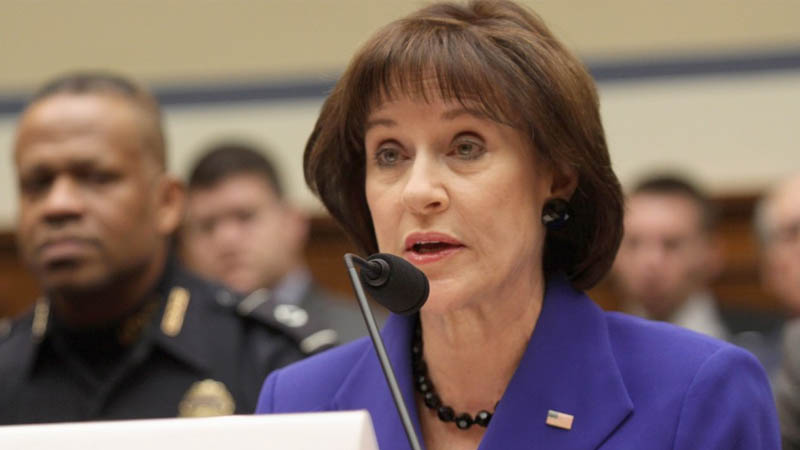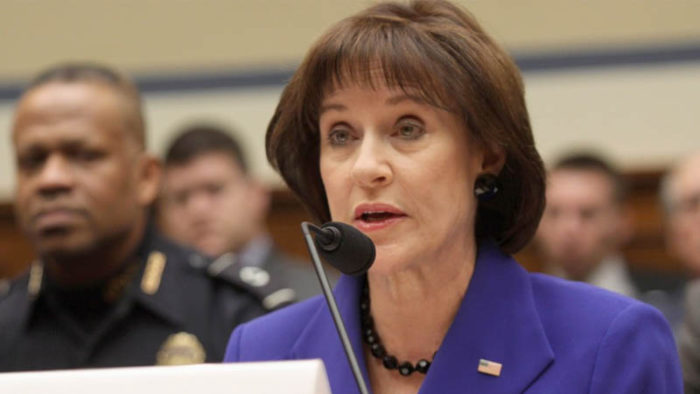This legislation, which Democrats have given the name the For the People Act, has been designated H.R. 1 in the House and S. 1 in the Senate, indicating Democrats view it as one of the most important, significant bills introduced this Congress.
If enacted into law, it would open the door to new political scandals in which the party in power abuses its power to target the political minority and mark a return to the days when the Obama-era IRS wrongly used its authority to target and harass people seeking to engage in the political process.
Back in 2012, the Obama administration’s IRS, led by Lois Lerner, was caught unfairly denying conservative groups nonprofit status. Because of Lerner’s bias, only one conservative political advocacy organization was granted tax-exempt status over a period of more than three years. As noted by a report conducted by the Senate Finance Committee:
The IRS did little to prevent this targeting or hold its employees accountable. For instance, the IRS failed to search five of six possible sources of electronic media for Lerner’s emails. The only source the agency bothered to search, her hard drive, was destroyed by an industrial-strength shredder after a brief search deemed information unrecoverable.
Later, the agency’s ineptness — or corruption — resulted in 24,000 of Lerner’s emails being lost when they were “accidentally” destroyed despite the existence of an agencywide preservation order. The full extent of this scandal was only uncovered years later in 2015.
This was not the only time the IRS went after organizations for political purposes. The agency also disclosed the Schedule B form, a confidential form that contains the names and addresses of donors, of the National Organization of Marriage. The IRS is legally prohibited from disclosing the Schedule B form, but this did not stop federal bureaucrats from leaking this information to an ideologically opposed organization.
H.R. 1 would give the federal bureaucrats new tools to target organizations seeking to participate in the political process.
The legislation transforms the Federal Election Commission from a bipartisan six-member commission into a five-member entity with two Republicans, two Democrats, and an “independent” as the tiebreaker. This reorganization could easily be abused with the appointment of a Bernie Sanders-style independent.
This FEC would be given new powers to regulate political speech that mentions any federal candidates or elected official based on a new “PASO” standard, or whether any speech “promotes,” “attacks,” “supports,” or “opposes” the politician.
This subjective definition means the political party in power could classify a broad range of political activities under this definition. As one example, the standard is so broad that it could easily sweep up advocacy on policies and causes such as single-payer healthcare or the Green New Deal, as noted by research from the Institute for Free Speech.
H.R. 1 also mandates that any organization that engages in “campaign related disbursements” disclose the names and addresses of donors that have contributed more than $10,000. It would establish federal criminal penalties for “deceiving or intimidating voters” related to the time, place, or manner of elections.
As it stands, political discourse is already heated and often becomes bitter. These proposals could easily create a partisan FEC that has new tools to target, harass, and publicly shame organizations that the administration does not agree with. Federal bureaucrats would have new ways to regulate political speech and subject political opponents to overly broad reporting and donor information requirements.
The politicization of the FEC is just one part of H.R. 1. The legislation creates taxpayer-financed elections, which will force the public to support politicians they don’t support. Where taxpayer financing has been tried, it has led to political scandals including funds improperly spent on nightclubs, restaurants, and groceries, while doing little or nothing to improve democratic participation or lessen corruption.
H.R. 1 would also allow the federal government to supersede and invalidate state election laws. Given the recent election controversies and the fact that many down-ballot races were extremely close (including one congressional race decided by six votes and another by 109 votes), it would not take much for this federal power to influence elections.
H.R. 1 is jam-packed with proposals that could provide new avenues for Democrats to go after people they do not politically agree with. The Left is pushing this vast new piece of legislation in order to change the rules of the system to benefit its own side. It should not be a mystery what this will lead to.
It will revive the type of political scandal seen under the Obama IRS when conservatives were targeted by federal bureaucrats for their political beliefs.







